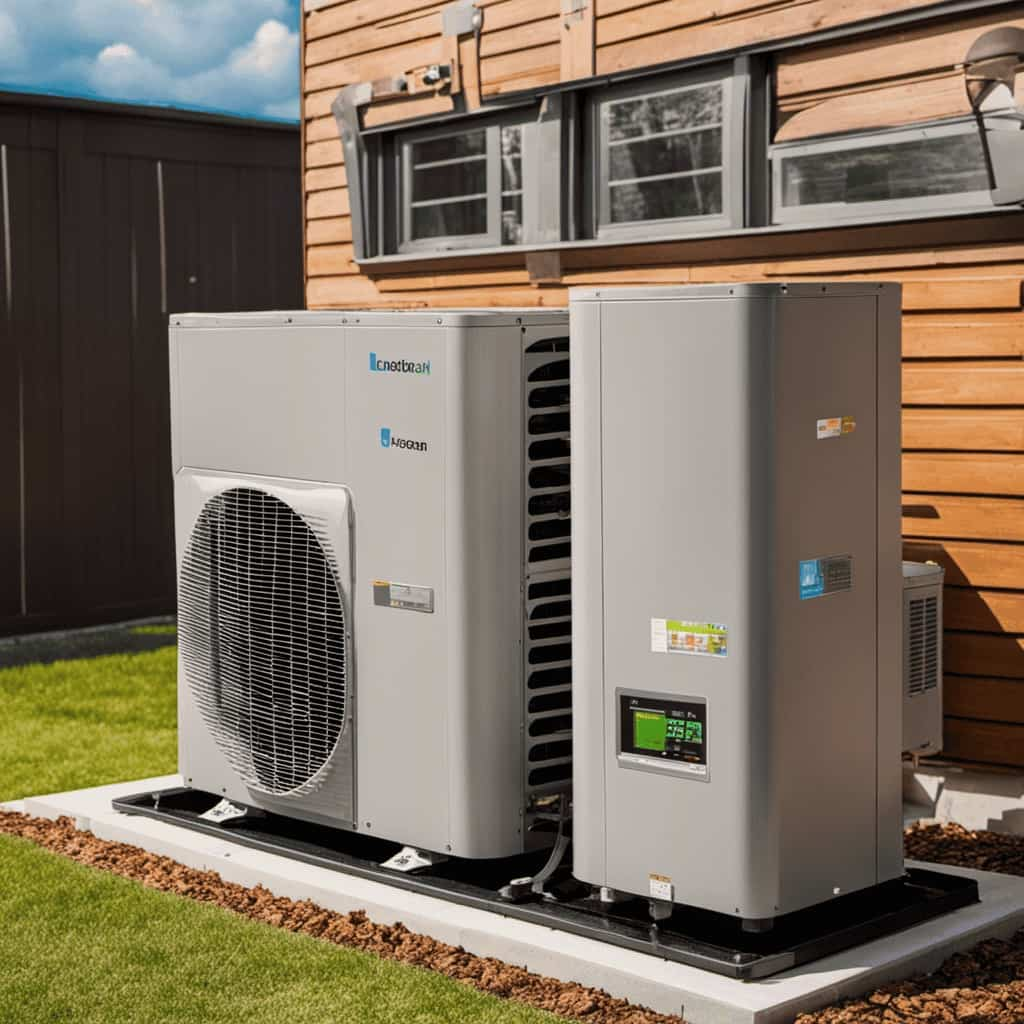We have all come across myths, skepticism, and misunderstandings. However, our goal today is to set the record straight and address any inaccuracies.
Renewable energy and heat pumps have long been plagued by myths and skepticism. But let us tell you, the truth is far more exciting.
In this article, we’ll debunk these myths, provide factual analysis, and show you the innovative possibilities that lie within renewable energy and heat pump technology.
Get ready to have your doubts shattered and your mind opened to a world of sustainable energy solutions.
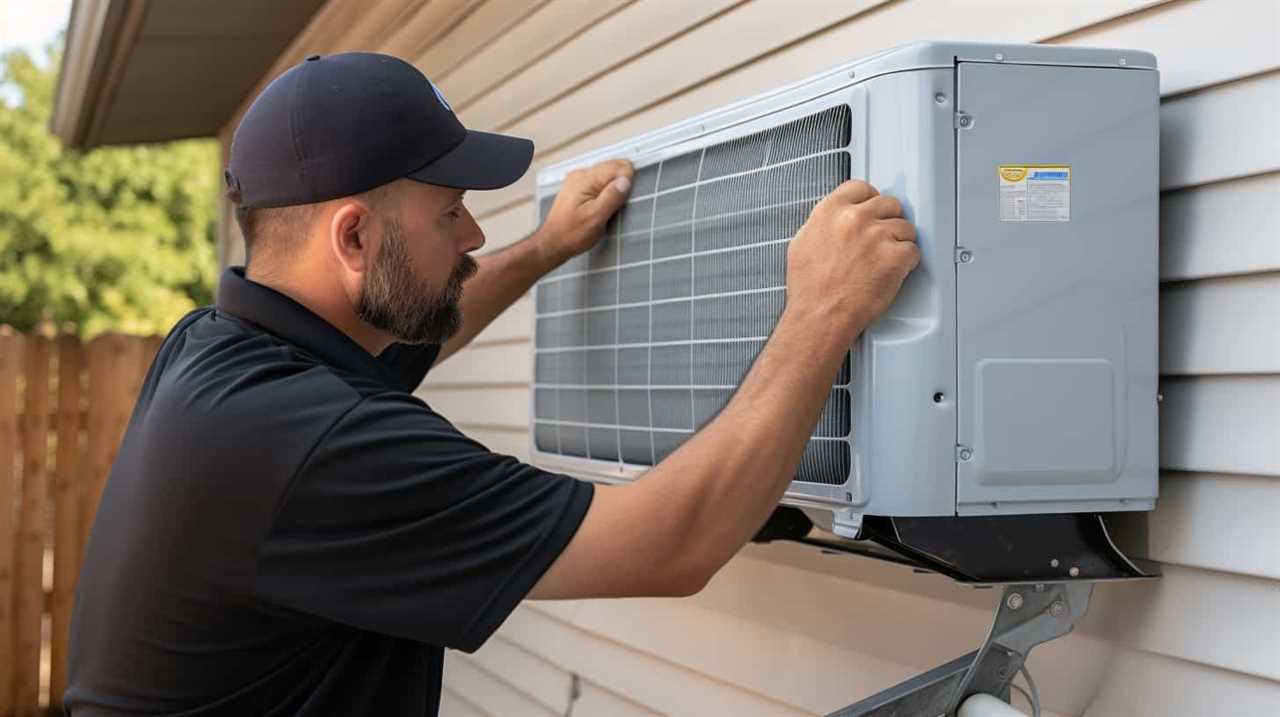
Key Takeaways
- Renewable energy sources like solar, wind, and hydroelectric power are highly reliable and efficient, with advancements in technology improving their reliability.
- Heat pumps offer a cost-effective and efficient solution for heating and cooling homes, consuming less energy and resulting in lower utility bills and long-term savings.
- Many governments and utility companies offer incentives and rebates for installing heat pumps, making them more affordable.
- Renewable energy and energy efficient solutions, including heat pumps, are crucial for a sustainable future, proving to be more reliable and cost-effective than commonly believed.
The Myth of Unreliable Renewable Energy
We often hear that renewable energy is unreliable, but that myth couldn’t be further from the truth. In fact, renewable energy sources such as solar, wind, and hydroelectric power have proven to be highly reliable and efficient.
One of the main misconceptions about renewable energy is that it’s dependent on weather conditions. While it’s true that solar and wind energy production can be influenced by weather patterns, advancements in technology have significantly improved their reliability. For instance, solar panels are now equipped with tracking systems that allow them to follow the movement of the sun, maximizing energy generation throughout the day. Additionally, wind turbines are designed to withstand various weather conditions, ensuring consistent power production. These innovations have effectively debunked the myth that renewable energy is unreliable.
Now, let’s dive into another common misconception: the costly heat pump myth.
Debunking the Costly Heat Pump Misconception
Contrary to popular belief, heat pumps aren’t as costly as many people think. In fact, they offer a cost-effective and efficient solution for heating and cooling homes.
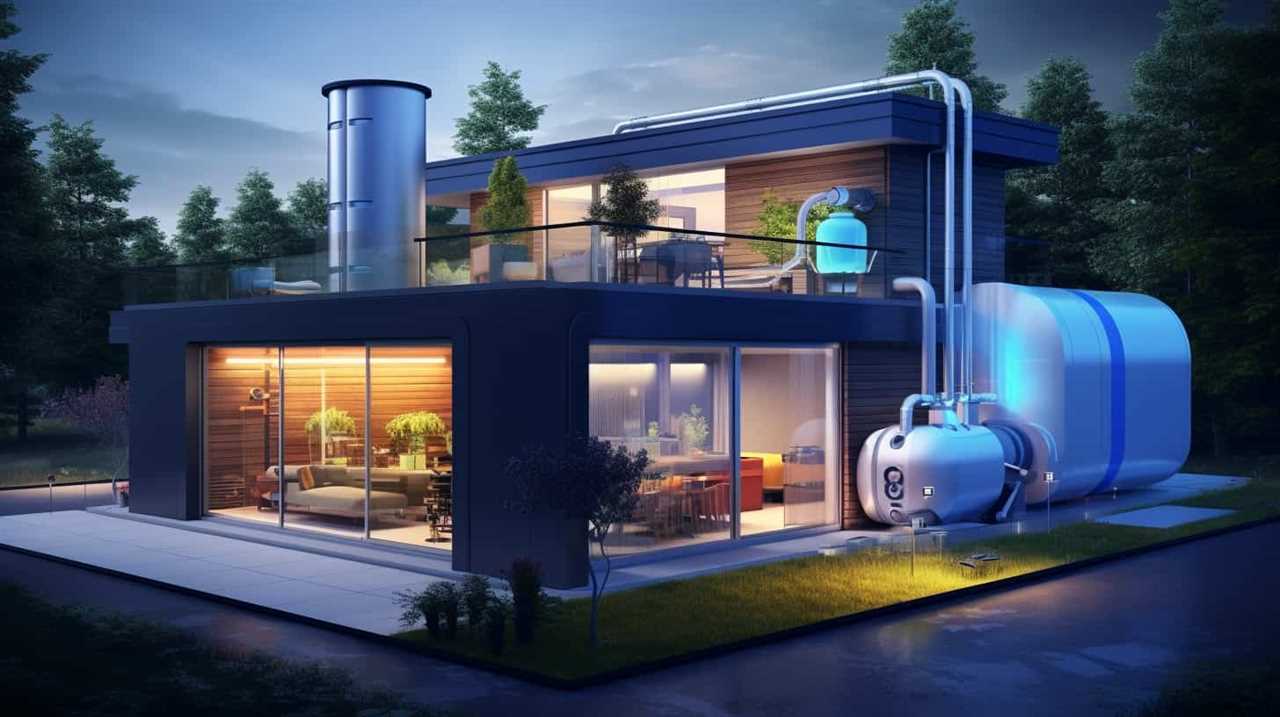
Here are three reasons why heat pumps are more affordable than you might realize:
-
Energy Efficiency: Heat pumps are designed to transfer heat from one place to another, rather than generating heat through combustion. This means they consume less energy, resulting in lower utility bills and long-term savings.
-
Incentives and Rebates: Many governments and utility companies offer incentives and rebates for installing heat pumps, making them even more affordable. These financial incentives can significantly reduce the upfront costs and help homeowners recoup their investment faster.
-
Lifespan and Maintenance: Heat pumps are built to last, with an average lifespan of 15 to 20 years. Additionally, they require minimal maintenance compared to traditional heating and cooling systems, saving homeowners on repair and replacement costs.
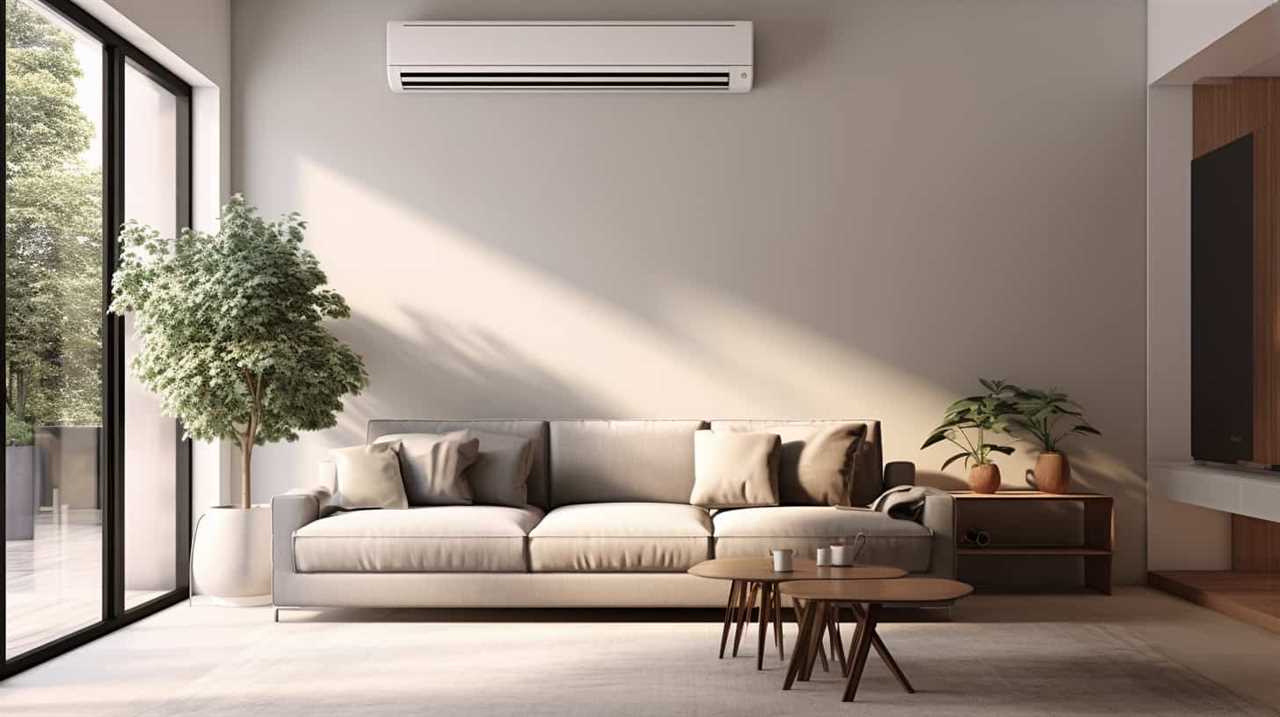
When considering renewable energy affordability, it’s important to debunk the misconceptions surrounding heat pumps. With their energy efficiency, financial incentives, and long lifespan, heat pumps prove to be a cost-effective choice for homeowners seeking innovative and sustainable heating and cooling solutions.
Separating Fact From Fiction: Renewable Energy and Energy Efficiency
Renewable energy and energy efficiency are crucial components in the transition to a sustainable future. It’s important to separate fact from fiction when it comes to these topics, as there are often misconceptions surrounding renewable energy and energy efficient heating solutions.
One common misconception is that renewable energy is unreliable and can’t meet our energy needs. However, advancements in technology have made renewable energy sources such as solar and wind more reliable and efficient than ever before.
Another misconception is that energy efficient heating solutions are too expensive and not worth the investment. In reality, energy efficient heating solutions, such as heat pumps, can save homeowners a significant amount of money in the long run by reducing energy consumption and lowering utility bills.
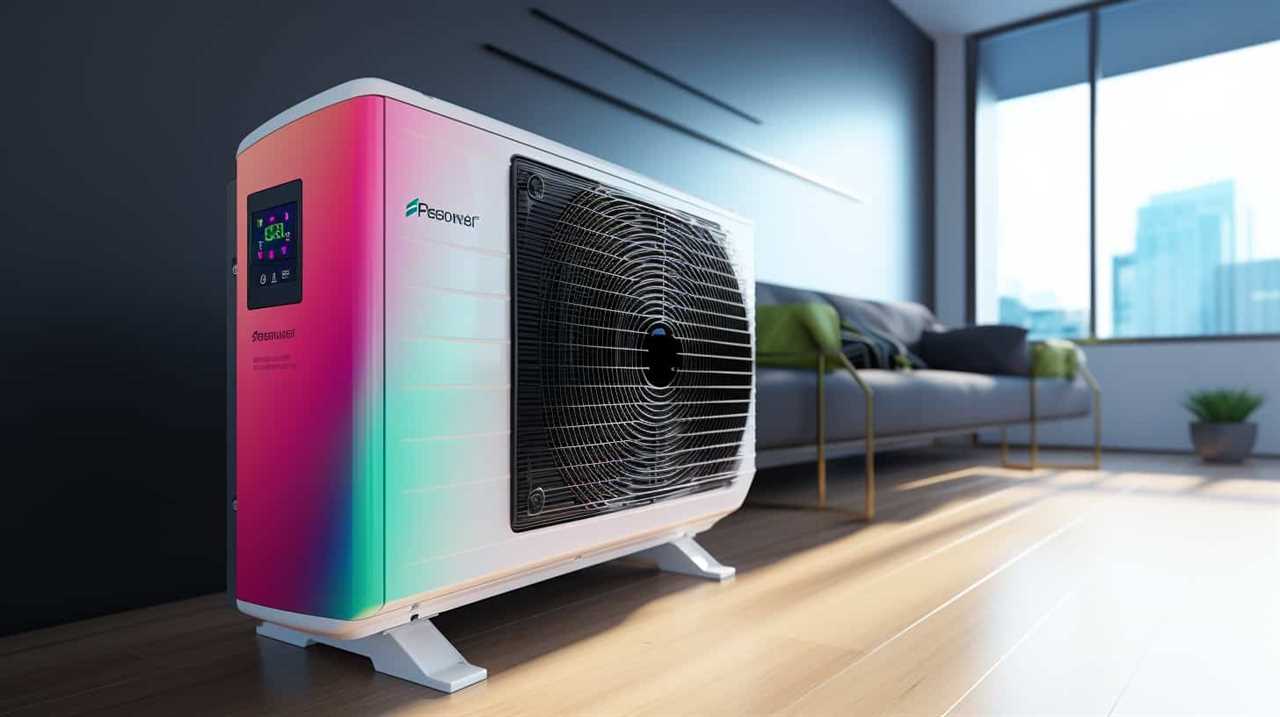
Dispelling the Doubts: How Heat Pumps Can Provide Reliable Heating and Cooling
When it comes to heating and cooling our homes, we all want a reliable and efficient solution. Heat pumps offer just that.
They provide energy-efficient heating and cooling, making them a cost-effective renewable solution for homeowners.
With their ability to transfer heat from one place to another, heat pumps can provide reliable and consistent comfort throughout the year.
Energy-Efficient Heating and Cooling
We have found that heat pumps are a cost-effective and reliable solution for both heating and cooling. When it comes to energy-efficient technology and sustainable heating, heat pumps excel in several ways:
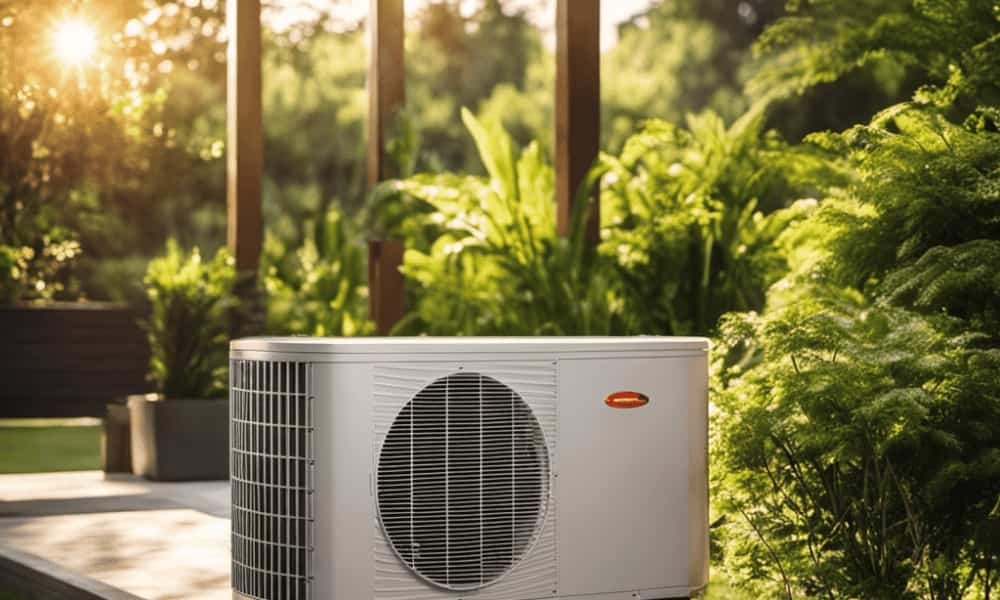
-
High Efficiency: Heat pumps can achieve high levels of efficiency, with some models boasting a coefficient of performance (COP) of up to 5. This means that for every unit of electricity consumed, the heat pump can produce up to 5 units of heat or cooling.
-
Year-Round Comfort: Heat pumps can provide both heating and cooling, making them versatile for all seasons. They extract heat from the air or ground and transfer it indoors or outdoors, depending on the desired temperature.
-
Lower Operating Costs: Heat pumps can significantly reduce energy bills compared to traditional heating and cooling systems. By harnessing renewable heat sources, they require less electricity to operate, resulting in lower monthly expenses.
With their energy efficiency, versatility, and cost savings, heat pumps are an innovative solution for reliable and sustainable heating and cooling.
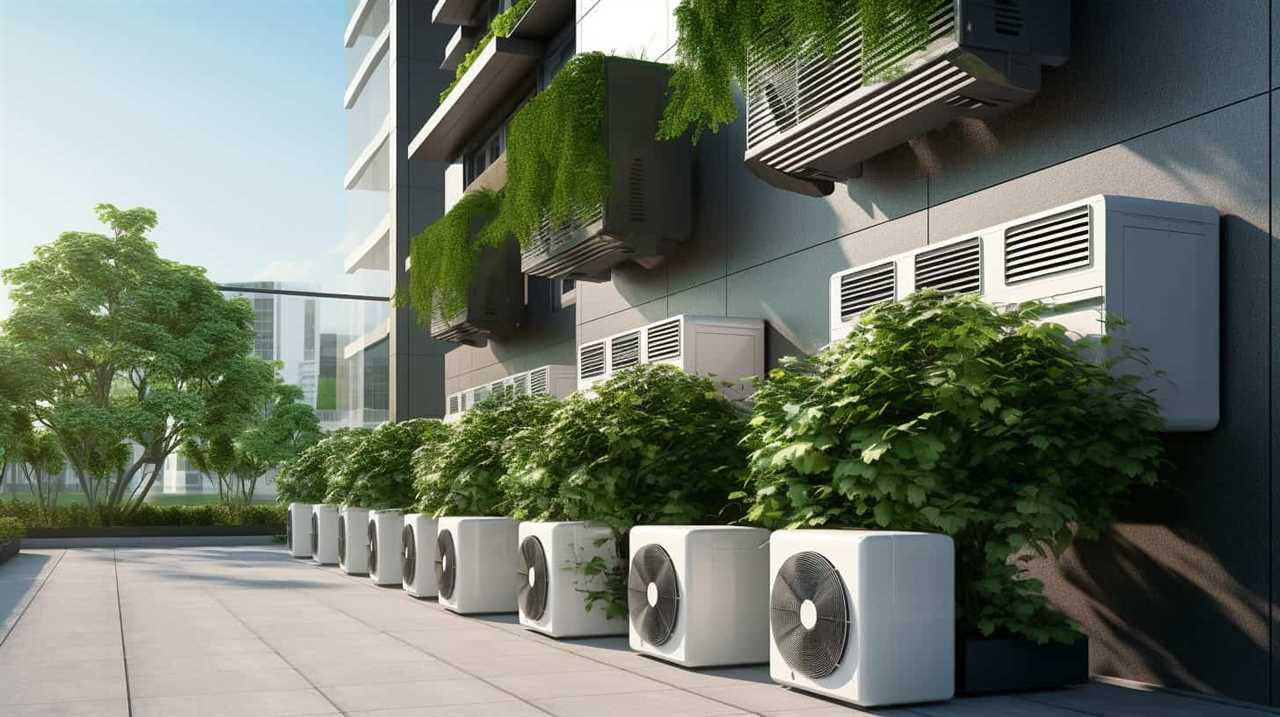
Cost-Effective Renewable Solutions
Let’s explore two cost-effective renewable solutions that demonstrate how heat pumps can provide reliable heating and cooling.
When it comes to renewable energy affordability, heat pumps are a game-changer. By utilizing the ambient heat in the air, ground, or water, heat pumps can efficiently transfer heat into or out of a space, depending on the desired temperature. This process isn’t only environmentally friendly but also cost-effective in the long run.
Heat pumps can achieve high levels of efficiency, with some models providing up to four times the energy they consume. This means lower energy bills and reduced carbon emissions.
The Truth About Renewable Energy and Grid Stability
As proponents of renewable energy, we understand the truth about grid stability and its relationship to renewable energy sources. Here are three key facts to consider:
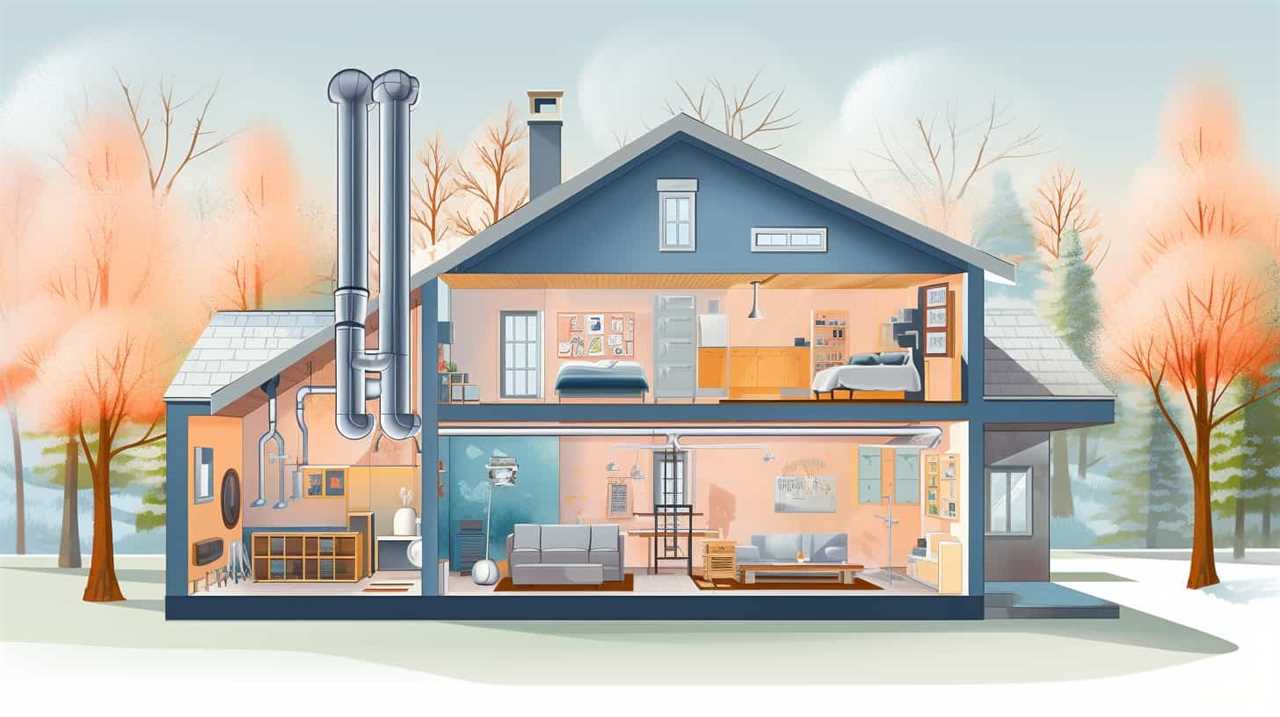
-
Renewable energy sources can enhance grid stability: Contrary to popular belief, renewable energy sources such as solar and wind can actually contribute to grid stability. Through advanced technologies and grid management systems, renewable energy can be integrated seamlessly into the existing power grid, ensuring a reliable and stable energy supply.
-
Grid stability requires a diverse energy mix: A diversified energy mix that includes both renewable and conventional sources is crucial for grid stability. By combining different energy sources, we can balance the intermittent nature of renewables with the constant power supply from conventional sources, ensuring grid stability even during periods of low renewable energy generation.
-
Grid stability is a priority for renewable energy developers: Renewable energy developers are fully aware of the importance of grid stability. They invest in advanced technologies and grid management systems to ensure that their projects can seamlessly integrate into the existing power grid, minimizing any potential disruptions and maximizing the stability of the overall grid.
Understanding the truth about renewable energy and grid stability is essential for building a sustainable and reliable energy future.
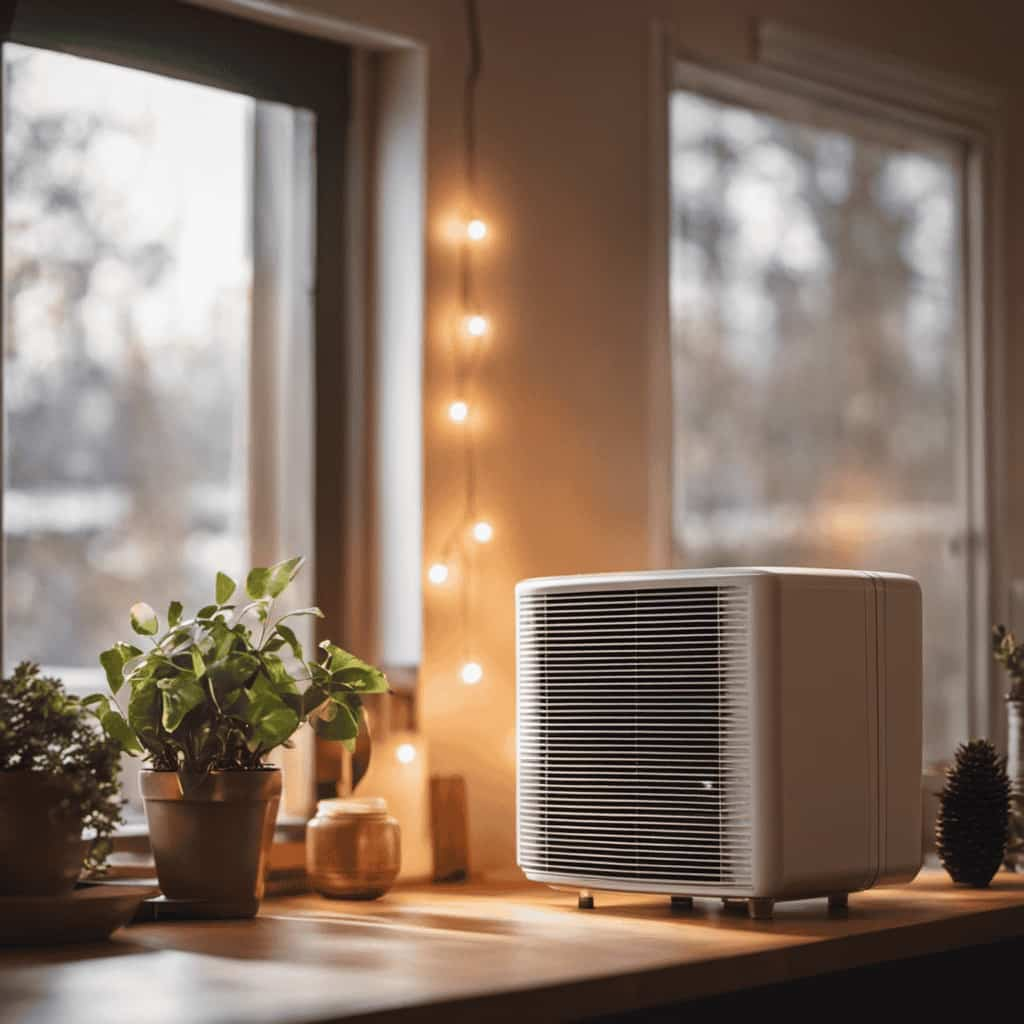
Now, let’s move on to the next section and break down the myths surrounding heat pumps and energy consumption.
Breaking Down the Myths: Heat Pumps and Energy Consumption
When it comes to heat pumps and energy consumption, there are several myths that need to be addressed and debunked. One common misconception is that heat pumps consume a significant amount of energy, making them inefficient and costly to operate. However, an energy consumption analysis reveals that heat pumps are actually highly efficient and can significantly reduce energy consumption compared to traditional heating systems.
To illustrate this point, let’s take a look at a comparison between a heat pump and a conventional electric furnace in terms of energy consumption.
| Heating System | Annual Energy Consumption (kWh) |
|---|---|
| Heat Pump | 3,500 |
| Electric Furnace | 7,000 |
As you can see, the heat pump consumes only half the amount of energy compared to the electric furnace. This debunking of the myth showcases the energy-saving potential of heat pumps and their ability to contribute to a more sustainable future.

Addressing the Concerns: Renewable Energy and Heat Pump Technology
When it comes to renewable energy and heat pump technology, there are two key concerns that need to be addressed: energy savings potential and environmental benefits.
Heat pumps have the potential to significantly reduce energy consumption and lower utility bills, making them a cost-effective option for homeowners.
Additionally, heat pumps are a greener alternative to traditional heating and cooling systems, as they produce fewer greenhouse gas emissions and rely on renewable energy sources.
Energy Savings Potential
We can achieve significant energy savings by utilizing renewable energy and heat pump technology. When it comes to energy savings potential, the combination of renewable energy sources and heat pump technology offers numerous benefits that can help us reduce our carbon footprint and protect the environment. Here are three key reasons why this combination is so effective:

-
Renewable energy sources such as solar and wind power provide a clean and sustainable energy solution. By harnessing these sources to power heat pumps, we can significantly reduce our reliance on fossil fuels and lower greenhouse gas emissions.
-
Heat pumps are highly efficient devices that can extract heat from the air, ground, or water and transfer it indoors for heating or cooling purposes. Compared to traditional heating and cooling systems, heat pumps can achieve energy savings of up to 50%.
-
The integration of renewable energy and heat pump technology can lead to energy independence by reducing our dependence on non-renewable energy sources. This not only helps us save money in the long run but also contributes to a more sustainable future.
Environmental Benefits Explained
One of the most compelling reasons to embrace renewable energy and heat pump technology is the multitude of environmental benefits they offer.
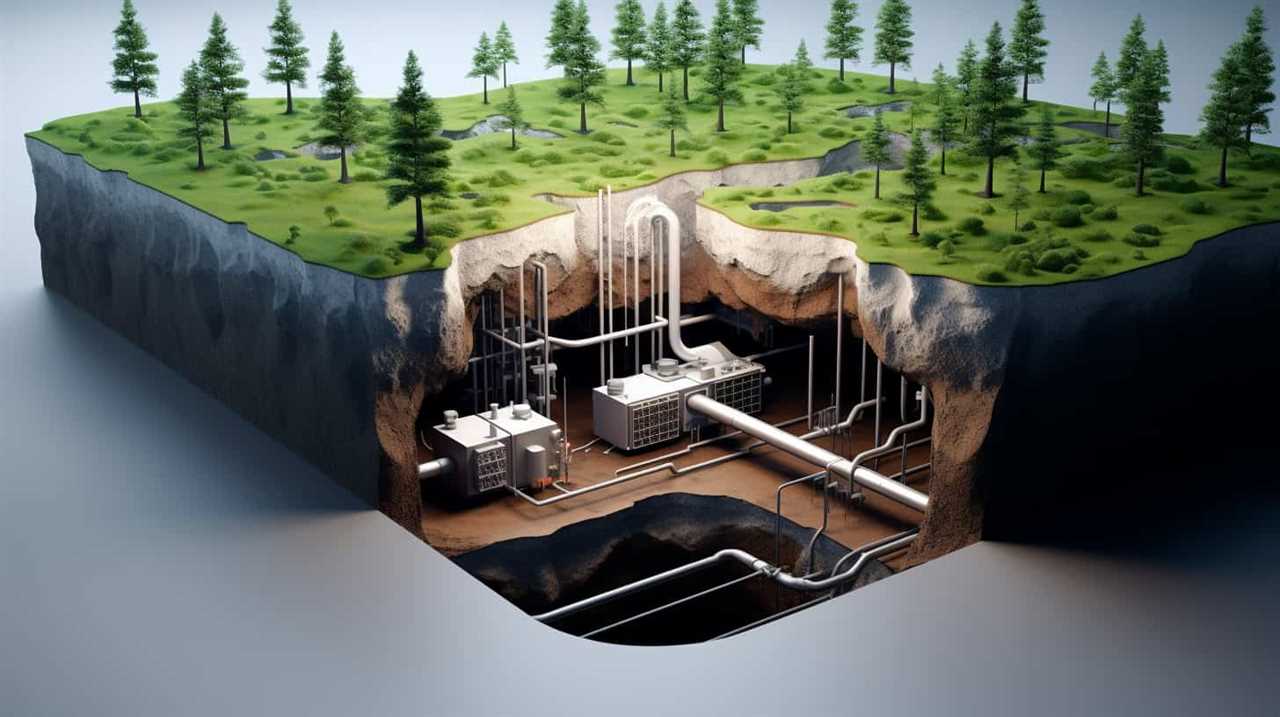
As public opinion shifts towards a greater concern for the planet, renewable energy sources such as solar and wind power are gaining popularity. These sources generate electricity without emitting greenhouse gases, reducing our carbon footprint and mitigating climate change.
Additionally, heat pumps provide a sustainable alternative to traditional heating and cooling systems. They extract heat from the air, ground, or water, and use it to warm or cool a building. This process is much more energy-efficient compared to conventional methods, resulting in lower energy consumption and reduced emissions.
Frequently Asked Questions
How Do Heat Pumps Compare to Traditional Heating and Cooling Systems in Terms of Energy Efficiency?
Comparative analysis shows that heat pumps are more energy efficient than traditional heating and cooling systems. They have a lower environmental impact, making them a smart choice for those seeking innovative solutions for their energy needs.
Are There Any Government Incentives or Rebates Available for Installing Renewable Energy Systems and Heat Pumps?
Yes, there are government incentives and rebates available for installing renewable energy systems and heat pumps. These incentives can help offset the installation costs and make it more affordable for homeowners.

Can Renewable Energy Sources Like Solar and Wind Power Be Harnessed Effectively in All Geographical Locations?
Renewable energy sources like solar and wind power have geographical limitations. However, with technological advancements, harnessing these energies effectively in all locations is becoming more feasible. Innovation is key to overcoming geographical barriers.
Do Heat Pumps Require a Significant Amount of Maintenance and Upkeep?
Heat pumps do not require a significant amount of maintenance and upkeep. They are cost-effective and efficient in providing heating and cooling. These systems are designed for minimal maintenance requirements, making them a reliable choice for renewable energy solutions.
Are There Any Potential Drawbacks or Limitations to Relying on Renewable Energy and Heat Pump Technology for Heating and Cooling Purposes?
There are potential challenges and limitations to relying on renewable energy and heat pump technology for heating and cooling. These include cost, limited efficiency in extreme temperatures, and the environmental impact of manufacturing and disposing of equipment.
Conclusion
In conclusion, renewable energy and heat pumps have been proven to be reliable and cost-effective solutions for heating and cooling.

Contrary to popular misconceptions, renewable energy sources aren’t unreliable and can provide stable power to the grid.
Additionally, heat pumps are an efficient alternative to traditional heating and cooling systems, reducing energy consumption and costs.
One interesting statistic to note is that heat pumps can reduce energy consumption by up to 50%, leading to significant savings for homeowners and businesses alike.

